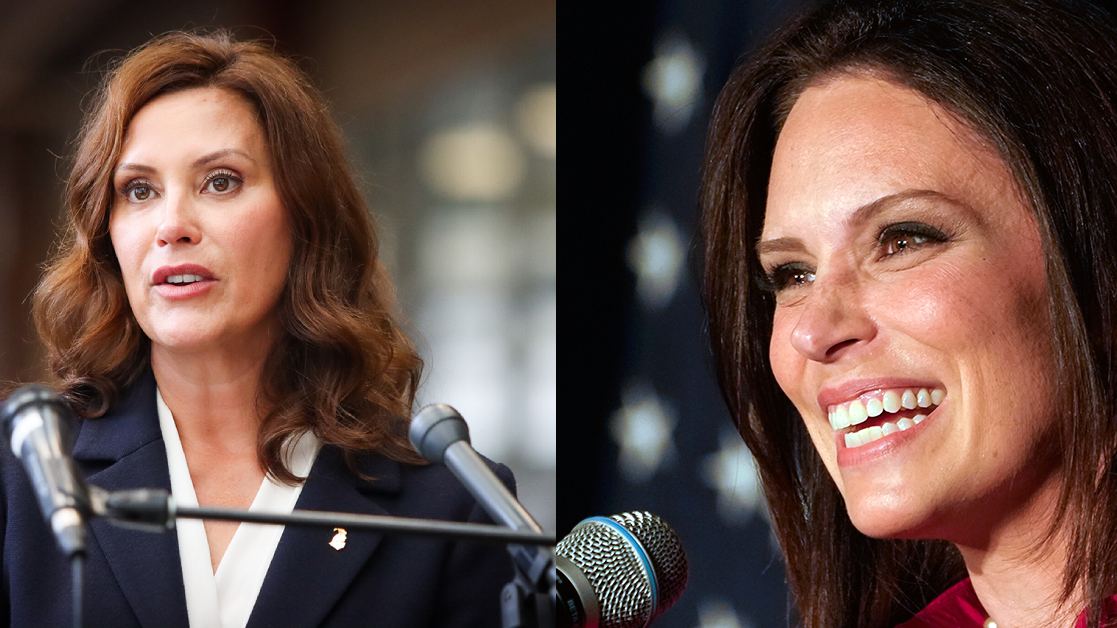MichMash: Gov. Whitmer and Dixon meet in their first gubernatorial debate
In this episode of MichMash, Cheyna Roth is joined by Detroit News reporter Beth LeBlanc to recap what we learned from the first gubernatorial debate between Gov. Gretchen Whitmer and Tudor Dixon.

Subscribe to MichMash on Apple Podcasts, Spotify, NPR.org or wherever you get your podcasts.
In this episode:
- Detroit News reporter Beth LeBlanc talks with Cheyna Roth on takeaways from the latest Michigan gubernatorial debate.
- This was the first time in Michigan’s history that two female gubernatorial candidates from major parties took the debate stage.
- Pundits felt there wasn’t a clear winner as each candidate made strong points.
Gov. Gretchen Whitmer and Republican nominee Tudor Dixon met on Oct. 13 in the first of two debates ahead of the November election.
“For a lot of viewers out there who haven’t seen much of Tudor Dixon, because she hasn’t had much in the way of ads, this may have been their first brush with her,” said Detroit News reporter Beth LeBlanc. “They also saw Gov. Whitmer challenge in a very real way on the debate stage last night.”
LeBlanc says Dixon is at a disadvantage being a newcomer and having no political background. But being a public figure and governor creates a lot of history and policy decisions for opponents to sift through. During the debate, Dixon repeatedly said that of all Michigan governors, Whitmer has vetoed the most bills of in the last 70 years.
“For Whitmer, there was an effort to show that she’s bipartisan, and for Dixon, there was an effort to show she was not not bipartisan that she vetoed a lot of bills,” LeBlanc said. “And I assume that at the end of the day, this was to tap into this idea that we just have a functioning government.”
In Whitmer’s case, there were a lot of decisions made in emergency moments over the last several years. During the debate, she acknowledged that different choices could’ve been made during the pandemic and these were in times of crisis.
Many familiar topics were covered by each candidate during the debate, including abortion and school safety.
Abortion
Dixon in the past has taken a hard stance on abortion exemptions. At this debate, Dixon said she supports abortion if the pregnancy may cause the mother to die, slightly shifting her stance. Dixon’s view is the Michigan governor will not play a role in deciding abortion rights in the state. Abortion issues are being taken up by courts across the country and will be decided by Michigan as they vote on ballot initiative Proposal 3.
“I think (Dixon) is drawing a line that says, ‘I believe in exceptions for the life of the mother.’ But (exceptions for) the health of the mother is a different matter in that sense, at least that’s the way I’m interpreting it, maybe she has clarified more,” LeBlanc said.
Whitmer’s position on abortion can be found in a lawsuit challenging the state’s 1931 abortion law. An injunction of the law in August returned abortion rights in Michigan to the status-quo with regulations that have been in place.
School Safety
Whitmer and Dixon both agree more should be done to make schools safer, but have very opposing views on what exactly that would look like. Dixon said more should be done to harden and strengthen school security, citing a 2018 report that laid out similar ideas. Whitmer’s ideas around making schools safe focus on gun policies like secure storage, red flag laws and background checks.
Pundits said it was not possible to decide a clear winner of the debate. Each candidate was prepared and directly got their points across. The last debate will take place on Oct. 25 at Oakland University.
Related posts:
- CuriosiD: Are Detroit election officials prepared for another ‘stop the count’ protest?
- Detroit Evening Report: Gretchen Whitmer leads Tudor Dixon in latest election poll
- Michigan’s high court puts abortion question on Nov. ballot
Trusted, accurate, up-to-date.
WDET strives to make our journalism accessible to everyone. As a public media institution, we maintain our journalistic integrity through independent support from readers like you. If you value WDET as your source of news, music and conversation, please make a gift today.
